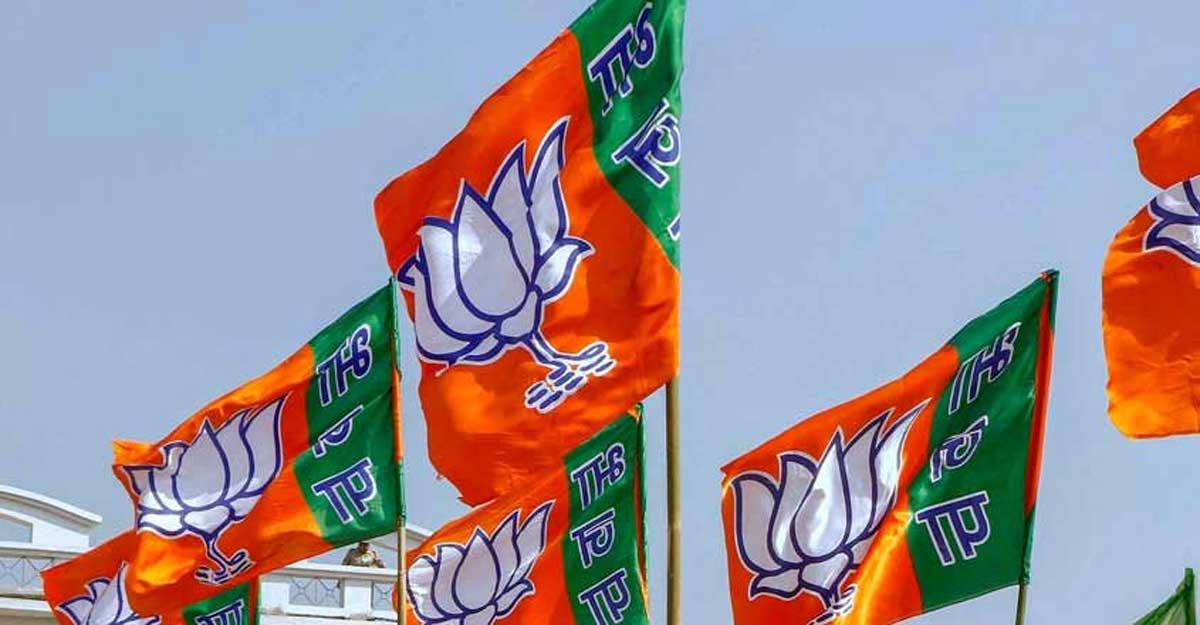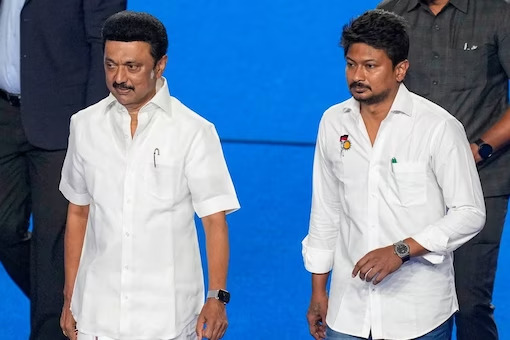In a surprising turn of events, Udhayanidhi Stalin, the Minister for Sports and Youth Affairs in the Tamil Nadu government and son of Chief Minister M K Stalin, has sparked a significant political controversy with his recent comments concerning Sanatan Dharma, the core teachings of Hinduism. During a press conference in Chennai, Udhayanidhi drew a parallel between eradicating Sanatan Dharma and combating diseases like dengue, malaria, and corona, invoking strong reactions from the Bharatiya Janata Party (BJP) and other quarters.
BJP‘s Accusations of a ‘Call for Genocide’
The BJP, led by Amit Malviya, the party’s IT cell chief, has launched a scathing attack on Udhayanidhi Stalin, accusing him of advocating for the eradication of Sanatan Dharma, which is followed by a significant majority of the Indian population. Malviya went so far as to characterize Udhayanidhi’s remarks as a “call for the eradication of a belief system followed by the majority.”
During the press conference, Udhayanidhi Stalin stated, “Certain things should not be opposed; they should be eliminated. We cannot oppose dengue, mosquitoes, malaria, or corona; we have to eradicate them. Similarly, we must eradicate Sanatana (Sanatan Dharma), rather than opposing it.”
These remarks quickly reverberated across the political landscape, with both the BJP and the Dravida Munnetra Kazhagam (DMK) issuing strong statements. While the BJP accused Udhayanidhi of promoting a dangerous idea and drawing parallels with diseases that require elimination, the DMK argued that his statement had been misinterpreted and taken out of context.
Amit Malviya’s Condemnation

Amit Malviya, a prominent figure within the BJP, didn’t mince words when addressing Udhayanidhi’s comments. He expressed his outrage, stating, “Udhayanidhi Stalin’s remarks are deeply troubling as they seem to suggest the elimination of a belief system followed by the majority of our population. Such statements are divisive and dangerous, especially when made by a sitting minister.”
Malviya further criticized Udhayanidhi’s alleged associations with external influences, suggesting that his views might have been influenced by external forces. He argued that the rich spiritual heritage of Tamil Nadu should not be undermined by such divisive rhetoric.
R. Annamalai, a prominent BJP leader and former IPS officer, also condemned Udhayanidhi’s comments, accusing him of harboring intentions to accumulate wealth and promoting ideologies that may not align with the state’s spiritual traditions. Annamalai called for a more constructive and inclusive approach to addressing social and religious issues.
On the other side of the political spectrum, the DMK came to Udhayanidhi’s defense, asserting that his words had been taken out of context. They maintained that he did not call for the eradication of Sanatan Dharma but instead suggested that it should not be opposed.
Udhayanidhi‘s remarks and the subsequent political storm highlight the ongoing ideological divide in India’s political landscape. The debate over religious tolerance, freedom of expression, and the role of religion in politics continues to be a contentious issue.
As the controversy unfolds, it remains to be seen how it will impact the political climate in Tamil Nadu and contribute to the broader national discourse on religious freedom and coexistence.
Udhayanidhi Stalin’s controversial remarks have ignited a fierce debate. While the BJP accuses him of promoting the elimination of a belief system followed by the majority, the DMK argues that his words have been misinterpreted. This incident underscores the complex and polarizing nature of religious and political discourse in India today. The fallout from these remarks may have implications for the nation’s political landscape, with potential ramifications for future elections and policy decisions.
As we reflect on this controversy, it is evident that political leaders must tread carefully when discussing matters of faith and belief. This incident serves as a stark reminder of the need for responsible and inclusive rhetoric in a country as diverse as India.
The fallout from Udhayanidhi’s comments may indeed shape the political landscape in Tamil Nadu and have repercussions on the national stage. It is essential for leaders to engage in constructive dialogue rather than resorting to divisive statements, as unity in diversity is not just a slogan but a guiding principle for a harmonious and flourishing democracy like India’s.












